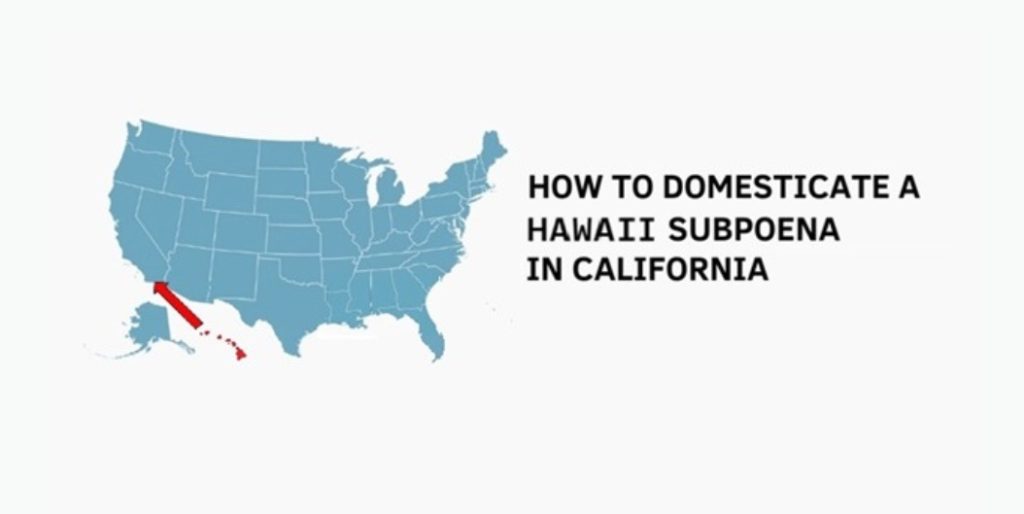If your civil case is pending in Hawaii and you need to obtain discovery from a person or business in California, you must first domesticate your Hawaii subpoena through the California Superior Court. Here’s how to do it correctly under UIDDA.

Countrywide Process
May 28, 2025
A subpoena issued in Hawaii has no legal authority in California unless it is first domesticated through California’s courts. This process ensures the subpoena complies with local jurisdictional and procedural rules.
The good news? Both Hawaii and California have adopted the Uniform Interstate Depositions and Discovery Act (UIDDA), which provides a simple administrative process for domesticating out-of-state subpoenas in civil cases.
You’ll need the following:
Ensure your California subpoena form is filled out but not signed. The court clerk will issue it upon review.
File the documents in the Superior Court in the California County where the person or business is located.
Check with the local court to confirm any additional forms or requirements.
California charges a $45.00 filing fee for an Application for Discovery Subpoena (SUBP-030), per Government Code § 70626(b)(5). Additional fees may apply for certified copies if needed.
Once the California court reissues the subpoena, it must be served per California law:
Because both states follow UIDDA, the process is:
At Countrywide Process, we’ve helped hundreds of firms domesticate and serve out-of-state subpoenas across California.
Use our Subpoena Domestication Platform or call us at (888) 962-9696 to begin today.
No. It must be domesticated under UIDDA by a California court first.
No. UIDDA allows out-of-state parties to file without counsel.
Usually 1–3 business days, depending on court workload.
Include the desired format and scope of ESI or documents in the subpoena language.